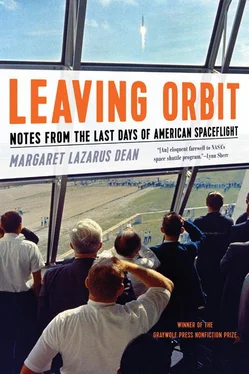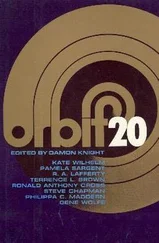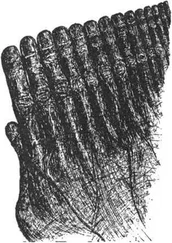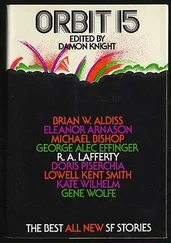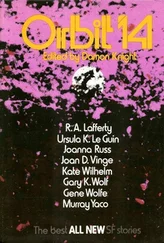With Norman Mailer, especially… I feel as though he and I are tugging on opposite ends of the same thread, a thread forty years long. I am often struck with jealousy for the era he lived in. Sometimes it seems as though Norman Mailer’s generation got to see the beginning of things and mine has gotten the ends.
From the outset she frames her own project via his: “What would it mean to go to the last launch and write about it the way Mailer wrote about the launch of Apollo 11?” Dean actually rereads Of a Fire on the Moon while she waits among the Florida throngs for Discovery to take off, and, whenever possible, correlates notes. “In his book about Apollo 11, Norman Mailer wrote that the Vehicle Assembly Building may be the ugliest building in the world from the outside,” she recalls, “but that from the inside it was a candidate for the most beautiful. I can finally see what he means.” Dean recognizes that she and Mailer share an “envy” of the astronauts:
The masculine envy of which he speaks is not masculine at all. It’s integral to the experience of watching people soaring into the heavens while we, with pen and paper, are stuck on the ground. I feel it too, and that envy is at the heart of a kinship between Norman Mailer and me that transcends forty-two years, a change in space vehicle, and even gender—a difference not insignificant to Norman Mailer, who once remarked to Orson Welles in a television interview that all women should be kept in cages. But I understand him, I feel him, just the same. I’ve read accounts of the launch of Apollo 11 by each of the three men on board, by the flight director and dozens of other people closely tied to the mission, and I’ve clung to every word; yet it’s Norman Mailer’s wrestling with his own detachment, his own desire to feel something for that gray stick, that stays with me, that makes me feel I’ve been let in on what it was like to be there.
Despite this unanticipated “kinship,” Dean (as here) refuses to flinch from their contrasts—generational, circumstantial, and tonal, or of gender and class. The gifted writer of Leaving Orbit also steadily positions herself as a mother, wife, and teacher. “This is an important difference between Norman Mailer and me,” she says, “when Mailer went off to Cape Canaveral and Houston, for as long as he pleased, he left behind five children with three different mothers and does not seem to have been troubled with much guilt over who would wash their clothes or fix their meals or get up with them in the middle of the night when they wet their beds. He probably wasn’t participating in these activities even when he was home. And even if by some chance he had been troubled by guilt, it would have been out of fashion to mention those feelings in his space book.” Shading the visionary into the everyday, Dean shows us, for instance, her students reading Mailer and Tom Wolfe on the astronauts, or herself attending a conference on space history in Washington, DC. She also shows us what she must miss due to other duties and roles—“mornings my husband has dressed and fed our little son, driven him to preschool, and managed the grocery shopping and dishes and laundry and temper tantrums and playdates and bedtimes…. So I chose not to go to Houston to visit Mission Control while Atlantis was on orbit, though my media badge would have allowed me access, though Norman Mailer went to Mission Control while Apollo 11 was in space.”
As Dean advances, though, “Norman Mailer” isn’t just the author of a space book she admires, or a ghostly oversized personality who spurs and vexes her, but her surprising metonymy for tracking a transformed America over the half century from JFK’s audacious 1961 challenge to land a man on the moon “before this decade is out” to the anticlimactic final shuttle flight, in 2011, of Atlantis. “I’m asking,” she writes, “what it means that we went to space for fifty years and what it means that we’ve decided not to go anymore.” Mailer, she reluctantly realizes, wasn’t so much witnessing “the start of something…. In fact, he was seeing its pinnacle. I have the sad advantage of traveling to Florida knowing I’m seeing the end.”
Whether because of this alertness to national diminishment, or her own microcosmic artistic temperament, the most startling wonders of Leaving Orbit tend to rise from minute, spectral looks—her canny notice of an astronaut who “knows she will never get to fly on a space shuttle, that they will all be sealed up in museums by the time her training is complete”; her empathetic and comic dramatization of her fellow “Space Tweeps” in a darkened room where all are punching tweets and posts into their phones; her exchanges with her hero Buzz Aldrin, and with crackpots, such as “moon hoax True Believers”; her moving portrait of Omar, a Facebook friend who works at the Cape as an Orbiter Integrity Clerk and emerges as her handy, loyal Virgil; her skeptical invocation of the first privatized spacecraft; and her internal dialogues with Mailer, Wolfe, and Oriana Fallaci about space then and now.
Come Dean’s finish, though, her yearning for the 1960s folds inside out, and during a recurrent dream, anyway, the dynamics of the initial jealousy of Mailer and Co. shift. “I know without being told that these chairs have been set up for all the writers who have written about the American space program,” she recounts, “though most of the chairs appear to be empty. Norman Mailer is sitting next to me, which makes me faintly nervous. I can also make out Tom Wolfe, Jay Barbree, J. G. Ballard, Lynn Sherr, Oriana Fallaci, Walter Cronkite, and fields of others, some long dead…. We space writers are all asked the same question all the time: Would you go? Mostly we say yes, but we know we are lying. We’ll never be given the chance anyway. We all feel Norman’s masculine envy at being left behind, but our envy is beside the point. We know that someone needs to stay behind and write about what it feels like to watch it from the ground.”
Her dream is what NASA dubs a “scrub,” a postponed, or maybe an aborted mission. “We wait on our folding chairs. We are waiting for something to happen, but we wait and wait and it never gets started.”
Robert Polito Chicago
THE GRAYWOLF PRESS NONFICTION PRIZE
Leaving Orbit: Notes from the Last Days of American Spaceflight by Margaret Lazarus Dean is the 2012 winner of the Graywolf Press Nonfiction Prize. Graywolf awards this prize every twelve to eighteen months to a previously unpublished, full-length work of outstanding literary nonfiction by a writer who is not yet established in the genre. Previous winners include The Empathy Exams: Essays by Leslie Jamison, The Grey Album: On the Blackness of Blackness by Kevin Young, Notes from No Man’s Land: American Essays by Eula Biss, Black Glasses Like Clark Kent: A GI’s Secret from Postwar Japan by Terese Svoboda, Neck Deep and Other Predicaments by Ander Monson, and Frantic Transmissions to and from Los Angeles: An Accidental Memoir by Kate Braverman.
The Graywolf Press Nonfiction Prize seeks to acknowledge—and honor—the great traditions of literary nonfiction, extending from Robert Burton and Thomas Browne in the seventeenth century through Daniel Defoe and Lytton Strachey and on to James Baldwin, Joan Didion, and Jamaica Kincaid in our own time. Whether it is grounded in observation, autobiography, or research, much of the most beautiful, daring, and original writing over the past few decades can be categorized as nonfiction. Graywolf is excited to increase its commitment to the evolving and dynamic genre.
The prize is judged by Robert Polito, author of Hollywood & God, Savage Art: A Biography of Jim Thompson, Doubles , and A Reader’s Guide to James Merrill’s The Changing Light at Sandover, and formerly director of the Graduate Writing Program at the New School in New York City. He is currently president of the Poetry Foundation in Chicago.
Читать дальше
